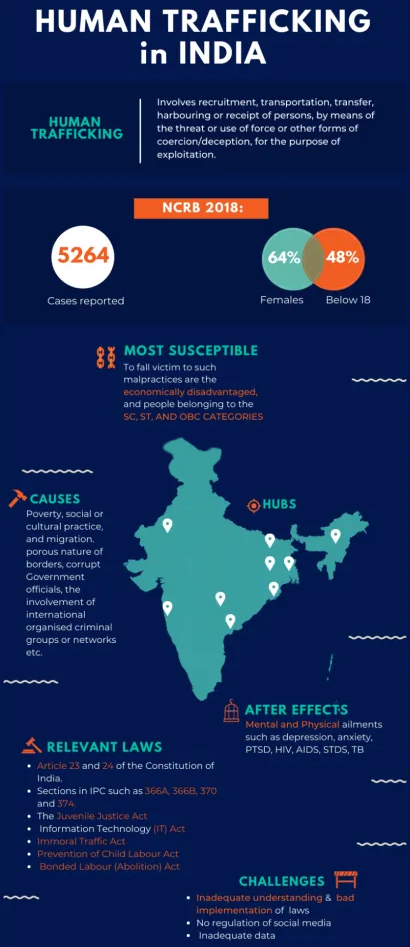02
Nov
Protocol to Prevent Human Trafficking: SCO
Protocol to Prevent Human Trafficking: SCO
The Shanghai Cooperation Organisation (SCO), in its 19th meet (of Prosecutors General) held in New Delhi, adopted a protocol to strengthen cooperation in preventing and combating growing menace of human trafficking, especially women and children.
- The current chair of SCO is Tajikistan.
SCO
- It was founded at a summit in Shanghai in 2001 by the presidents of Russia, China, the Kyrgyz Republic, Kazakhstan, Tajikistan and Uzbekistan.
- Presently, it comprises eight member states namely India, Kazakhstan, China, the Kyrgyz Republic, Pakistan, the Russian Federation, Tajikistan, and Uzbekistan.
- India was made an observer at the SCO in 2005.
- India and Pakistan became its permanent members in 2017.
- It is headquartered in Beijing, China.
- RATS (Regional Anti-Terrorist Structure) is a permanent organ of the SCO, headquartered in Tashkent, Uzbekistan.
- The summit is held annually and chairmanship goes to the member states for a year on rotation basis.
Key Points
- Human Trafficking:
- Human trafficking involves recruitment, transportation, transfer, harbouring or receipt of persons, by means of the threat or use of force or other forms of coercion, for the purpose of exploitation.
- Exploitation include, at a minimum, the exploitation of the prostitution of others or other forms of sexual exploitation, forced labour or services, slavery or practices similar to slavery, servitude, or the removal of organs.
- About the Protocol:
- Calls for continuation of exchange of national legislation to combat the menace of trafficking in persons.
- Seeks to provide protection and assistance to victims of trafficking within their competence.
- Calls for developing cooperation between the educational organisations of the SCO member states in the field of advanced training of prosecutors, whose competence include combating trafficking in persons especially, women and children.
- Relevant Laws in India:
- Immoral Traffic (Prevention) Act 1956 is the premier legislation to deal with this issue.
- Article 23 and 24 (Right Against Exploitation) of the Constitution of India.
- 25 sections in IPC such as 366A, 366B, 370 and 374.
- The Juvenile Justice Act and the Information Technology (IT) Act and also the Prevention of Child Labour Act, the Bonded Labour (Abolition) Act, among others.
- India’s Efforts in Combating Human Trafficking:
- In July 2021, the Ministry of Women and Child Development released Draft anti-trafficking Bill, the Trafficking in Persons (Prevention, Care and Rehabilitation) Bill, 2021.
- India has ratified the United Nations Convention on Transnational Organised Crime (the Palermo Convention) which among others has a Protocol to Prevent, Suppress and Punish Trafficking in Persons, especially Women and Children.
- India has ratified the SAARC Convention on Preventing and Combating Trafficking in Women and Children for Prostitution.
- Anti-Trafficking Nodal Cell was set up in the Ministry of Home Affairs (MHA) in 2006 to act as a focal point for communicating various decisions and follow up on action taken by the State Governments to combat the crime of Human Trafficking.
- Judicial Colloquium: In order to train and sensitize the trial court judicial officers, Judicial Colloquium on human trafficking are held at the High court level.
- Ministry of Home Affairs under a Comprehensive Scheme ‘Strengthening Law Enforcement Response in India against Trafficking in Persons’ through Training and Capacity Building, has released fund for establishment of Anti Human Trafficking Units for 270 districts of the country.
- The Ujjawala scheme was launched in 2007 to put an end to the trafficking of children and women. The objective of the scheme is to prevent, rescue, rehabilitate, reintegrate, and repatriate victims trafficked for commercial sexual exploitation.
- Various initiatives such as “SwadharGreh Scheme”, “Sakhi”, “Universalization of Women Helpline”, provide for a supportive institutional framework and mechanism for addressing concerns of women affected by violence.

